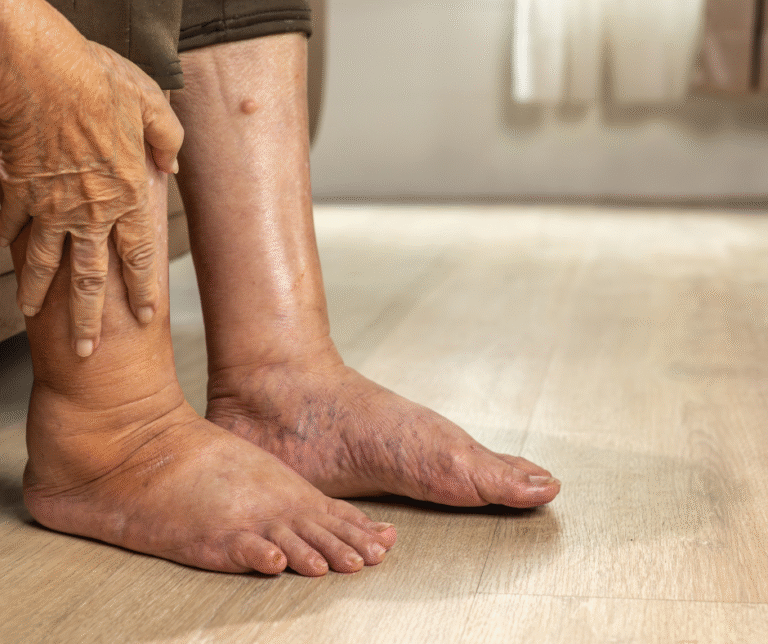Are Your Feet Signaling a Thyroid Problem?

Many people are unaware that our feet are the first ones to send warning signals in case something is wrong with our body or if any of our organs need attention. This January, as we celebrate Thyroid Awareness Month, we would like to highlight that our feet also signal us in case we are experiencing hypothyroidism or hyperthyroidism.
While the symptoms of hypothyroidism or hyperthyroidism may appear similar to other issues, you need to examine your feet and determine if the conditions are persistent or aggravating. Here are some conditions to look out for:
- Swelling: It is normal for the feet to swell up after a long day of standing or excessive moving around. However, you need to observe if the swelling is too frequent and visibly noticeable throughout the day. If that is the case, get your thyroid checked right without any delay.
- Foot odor: Hypothyroidism makes a person sweat excessively. Excessive sweating in the feet, especially if you are wearing closed shoes, is likely to expose them to infections and foot odor.
- Infections: With both, hypothyroidism or hyperthyroidism, our feet are at a heightened risk of becoming infected with toenail fungus or Athlete’s foot. If you feel that these infections are recurring or that they develop too easily, it is likely you may be experiencing thyroid disorder.
- Cold feet and hands: In hypothyroidism, our metabolism slows down, causing a drop in the body’s temperature. As a result, you may feel that your feet and hands are constantly cold and maybe even colder than usual. If such is the case, visit your doctor and get your thyroid examined.
- Dry skin on the feet: While it is common for skin to feel dry and flaky in the winter, with hypothyroidism, you may experience excessively dry skin, especially underneath your feet. If left unattended, the skin may crack and develop into deep fissures, prone to become infected.
You may also experience pain in your feet due to thyroid disease. However, foot pain can be caused by a number of reasons like uncomfortable footwear, muscle or tissue damage, Achilles tendonitis, bone or joint deformation, ingrown toenails, injuries and wounds, fractures, sprains, and more.
To find the root cause of your pain and address the issue, consult with your podiatrist. They will examine your feet and give a proper diagnosis of your condition. Depending on the severity of your condition, treatment options will vary from using supportive braces to orthotics or corrective surgical procedures. Visit your podiatrist today for more information.
Are you worried about the effects of thyroid disease on your feet, or do you have concerns regarding your foot and ankle health? Call the friendly My Chicago Foot Expert staff at (773) 561-8100 or click here to schedule an appointment with Cook County podiatrist Stavros O. Alexopoulos, DPM in our modern, comfortable Ravenswood office today.







